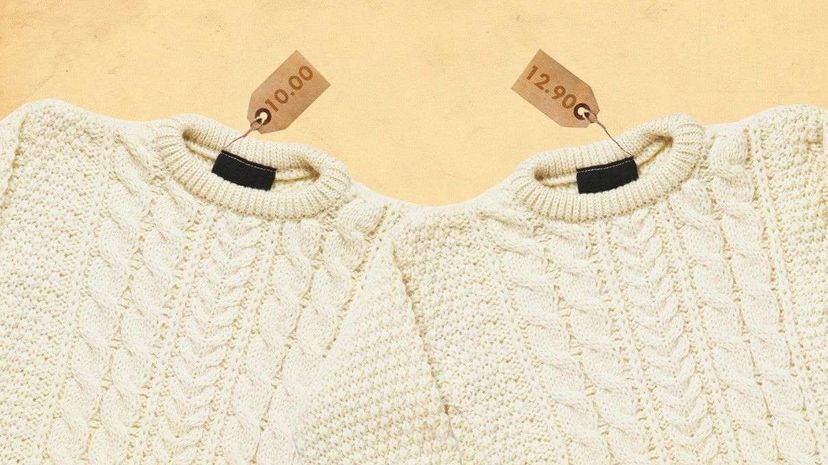 “Precision can be effective when it comes to negotiating prices. But there is such a thing as too much precision, researchers have found. Goir/Thinkstock/Steve Gordon/Getty Images
“Precision can be effective when it comes to negotiating prices. But there is such a thing as too much precision, researchers have found. Goir/Thinkstock/Steve Gordon/Getty Images
Say two people want to buy the sweater off your back. One is cold. The other likes sweaters. Just go with it. One says, "Listen, pal, I’ll give you $12.90 for that sweater."
The other says, "Hmm, I’ll give you ten bucks."
You’re probably going to go with the higher bid because you’re no dummy. But do you also think the person who offered $12.90 might know more about sweaters than the $10 person, especially if you happen to know that the sweater is for sale on eBay for $12.85? (Don’t question why you’re looking for a sweater you already own on eBay.) You might.
Researchers publishing in the journal Psychological Science have found that extremely exact bids — as in, "I’ll offer you $4,614.18 for the car you’re selling" — can be useful if you’re negotiating with a novice, but an expert is probably going to assume you don’t know what the heck you’re talking about.
The scientists conducted a series of experiments to test the "precision effect," or the idea that a precise bid is more likely to be accepted in certain circumstances. We’ll highlight one of their experiments to give you the general idea. It went like this: 230 novices and 223 real-estate professionals were each given the same information about a house. They were shown list prices for the house ranging from two precise digits (e.g., $450,000) to eight precise digits (e.g., $449,376.17). They were asked to counter the offer, and give their highest bid for the house.
The researchers found that as the number of precise numbers rose, the amateurs’ offers went up. But the expert’s offers only went up if the number was precise to around five digits, and then went back down if the list price was more precise. Researchers think that while an extremely precise bid could capture the attention of amateurs and experts, it’s going to make the amateurs think they’re dealing with a real pro, while the expert is more convinced they’re working against a less competent foil.
NOW THAT’S INTERESTING
The study also found that providing the expert with a rationale for the precise bid — like listing damage or use — worked to negate the experts’ belief that the negotiator was less competent, and they were willing to pay more if given a precise bid.


